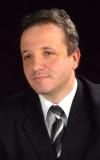1. Bolotov V.A. K voprosam o reforme pedagogicheskogo obrazovanija // Psihologicheskaja nauka i obrazovanie. 2014. T. 19. № 3. P. 32–40.
2. Bermus A.G. Gumanitarnye smysly obrazovanija: iz XX - v XXI vek: monografija/Bermus A.G., Juzhnyj federal'nyj universitet. - Rostov-na-Donu: Izdatel'stvo JuFU, 2015 - 318 p.
3. Literature Review on Teacher Education in the 21st Century (2010) /University of Glasgow. Scottish Government Social Research. 2010. 100 p. URL: http://dera.ioe.ac.uk/1255/1/0105011.pdf (Accessed on 7 May 2015)
4. Abazovik E.V. Osobennosti professional'nyh standartov podgotovki uchitelej v Anglii [Jelektronnyj resurs] // Pis'ma v Jemissija. Offlajn: jelektronnoe nauchnoe izdanie. 2010. №3. URL: http://www.emissia.org/offline/2010/1395.htm (Accessed on 5 May 2015).
5. Bales B.L. (2006) Teacher education policies in the United States: The accountability shift since 1980// Teaching and Teacher Education 22. P. 395–407.
6. Elmore, R. F., & McLaughlin, M. W. (1988). Steady work. Washington, DC: National Institute of Education.
7. Beach D., Bagley C., Eriksson A., Player-Koro C. (2014) Changing teacher education in Sweden: Using meta-ethnographic analysis to understand and describe policy making and educational changes //Teaching and Teacher Education 44 (2014) P. 160 – 167.
8. Apple, M.W. (2001). Markets, standards, teaching, and teacher education. Journal of Teacher Education, 52, 182 – 196.
9. Zeichner, K. (2010). Competition, economic rationalization, increased surveillance, and attacks on diversity: neo-liberalism and the transformation of teacher education in the US. Teaching and Teacher Education, 26, 1544 – 1555.
10. Garm N., Karlsen G.E. Teahcer education reform in Europe: the case of Norway; trends and tensions in a global perspective //Teaching and Teacher Education 20 (2004) 731–744
11. Cochran-Smith, M., & Fries, K. M. (2001). Sticks, stones, and ideology: the discourse of reform in teacher education. Educational Researcher, 30(8), 3–15
12. Struyven K., De Meyst M.. Competence-based teacher education: Illusion or reality? An assessment of the implementation status in Flanders from teachers’ and students’ points of view / Teaching and Teacher Education 26 (2010) 1495 – 1510.
13. «Kak sdelat' professiju uchitelja — professiej budushhego! Uroki so vsego mira». Analiticheskij doklad mezhdunarodnogo sammita, posvjashhennogo professii uchitelja — Perevod s angl. L.I. Zaichenko, red. N.A. Zaichenko. — SPb.: Otdel operativnoj poligrafii NIU VShJe — Sankt-Peterburg, 2011. — 144 p.
14. Barber M., Donelli K., Rizvi S. Nakanune shoda laviny: vysshee obrazovanie i grjadushhaja revoljucija // Voprosy obrazovanija. 2013. №3 URL: http://vo.hse.ru (Accessed on 10 May 2015)












